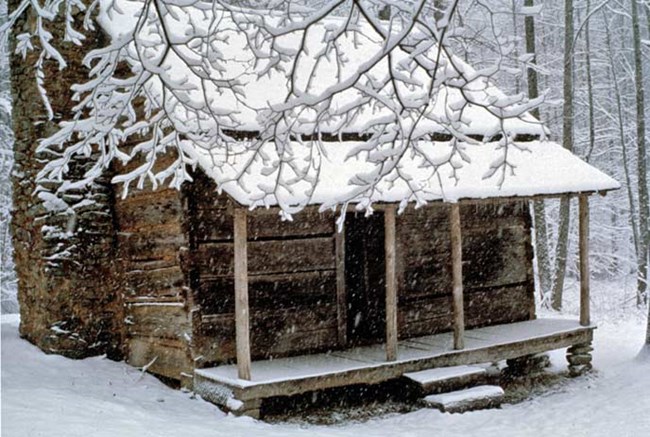
Day 17: Grandmama was a mountain girl…
In the South, you might have someone ask you, “Where do you come from?” Now that is a loaded question. People not from North Carolina don’t quite know how to figure us out sometimes. They might look at us, hear us talk, see the rural/farming background or Smokey Mountain heritage and judge us as “hicks” or common folk. They might see us as not very educated, or as sophisticated as others perhaps because of our “southern drawl” which might sound to country. But don’t be fooled, there are some deep roots in the South, and you don’t want to underestimate them.
“Where do you come from?” has many meanings. “What part of NC are you from?” “Who are your ancestors?” “What’s your family name?” “What does your Daddy do?” “Who are your Mama and Daddy?”
Ancestry is one’s historical evolution, based on family relationships. Heritage is a sort of inheritance from the ancestry not necessarily relatives but more cultural and social.
Chartered in 1875, the Town of Weaverville is located 9 miles north of Ashville in the Blue Ridge Mountains and that’s where Grandmama grew up. I say Weaverville only because it was the closest town. The “Jones” lived in the mountains outside of Weaverville.
Grandmama had 10 brothers and she was the only girl. Two siblings died at a very young age, so my Great-Grandmother had 12 children in all. Of the 10 boys, two grew up to be Clergymen, one was an M.D., and three were PhDs and taught. The other four were either farmers or worked in Western North Carolina.
So, “Where did Grandmama come from?” Born in 1895, she was the middle child and only girl in a family from the Appalachian region of North Carolina. From a family that valued education and God. A family that worked hard and valued family. She knew hardship and she knew faith. She was Agnes Leonia…Agnes means pure or holy and Leonia means female Lion and Grandmama was both!
My Grandaddy Clarke was a prolific writer…I must have gotten it from him. In one of his stories, in his first assignment as a Methodist Minister to six or so dirt-poor churches in the mountains of North Carolina, he wrote about how they had no food, in a winter blizzard and had been married less than a year. Grandmama was also 6 months pregnant with their first child…this was 1917. Granddaddy writes…
Agnes stood at the small window at the end of the cabin. She pressed her face against the panes and looked towards the home she had left only a few months before. Night was fast closing in. Broad snowflakes were falling like air-born feathers. A thick white blanket covered the earth. Trees, shrubs and plants, stooped low in mourning. The night was captured by the still silence of beauty.
Presently, she turned and looked across the room which was empty except for the ancient, corded bedspread on our bed and the rusty stove that was invented by Mr. Franklin, and two chairs.
“What shall we eat tomorrow?” She asked.
“The same as usual”, I replied. “Dried apples for breakfast, drink water for dinner and fast for supper”.
There was pathos in her voice and the answer did not seem appropriate at the time. Being a bride of six months and carrying her first child, was a new and trying experience. And too, she was not entering the role of a minister’s wife on his first appointment.
There were no dried apples left, no rice, no meal. The remnants of what had been were all consumed for supper and still the hunger pains were gnawing away as usual. I was thinking about the words of Glen Taylor, a rural mail carrier and a Primitive Baptist. He said that we tell our preachers, “If the Lord will keep you humble, we will keep you poor.” Surely the Methodist people at Laurel Springs had gone them one better. Through neglect and lack of any concern, their preacher was now facing starvation or being forced to abandon the work.
We were cold and hungry. The bed covering was not enough for the severe weather. The wind outside howled the song of death while gnawing stomachs ticked away each hour of the night.
Just before daylight the next morning, a voice was heard calling from outside. It sounded like the cry of one in great distress. We listened. Sleet was still clattering on the roof. The voice rang out strong and clear from the rim of the woods. With a smokey lantern in my hand and still in my two suits of Army underwear, I walked in the direction of the call.
At first, the distant object looked like an angel. I thought of the one that came to the shepherds as they watched their flocks on the far away Judean hills, many centuries ago. Could the beast I saw be like the one on which the Lord made His triumphant entry into Jerusalem?
The man on the beast was tall and lean. His eyes were clear and kindly. He spoke with a feeling of compassion.
“Are you the preacher?” he asked.
“Yes, I am, and my wife is with me”, I replied.
Sacks and bundles were tied to his saddle. In these were a ham, a chicken, lard, bacon, coffee, canned fruits and vegetables. These provisions were pushed under our bed for safe keeping and then the man told his story.
He spoke of how he could not sleep since hearing that a new preacher had moved into the Parsonage. He wondered if we were hungry and needed food. Throughout the night he was tormented by the thought. He packed his pony and struggled three miles over the mountain through the deep snow, sleet and darkness. As he turned to go, I saw a strange light settle upon his face. And then he moved out across the snow and was soon lost around the bend in the trail.
Green Welborne (his name) had no family of his own, He attended no public worship. He lived alone and only a few people knew the exact location of his cabin, deep in the mountain cove. A call came in the night. He heard the voice and obeyed. We bowed our heads and quoted the scripture, “Go ye into all the world and preach the gospel…, and lo, I am with you always even unto the end of the world.”
One thought was in my mind, “God works in mysterious ways, His wonders to perform”. This experience strengthened my call to preach. We took it as mana from the benevolent hand of the Creator, like the feeding of Elijah by the mouth of the ravens. A man, little heard of and never thought of by the people of the countryside, was used to convey the act of mercy.
I only saw him twice after that experience, but I have a feeling that somewhere in the valley of the great unknown he is grazing in green pastures and being fed by Him who sees even a sparrow that falls.
Sorry, I went so long today, but I wanted to show some of my heritage and to give thanks and praise to God and my ancestry.

Recent Comments